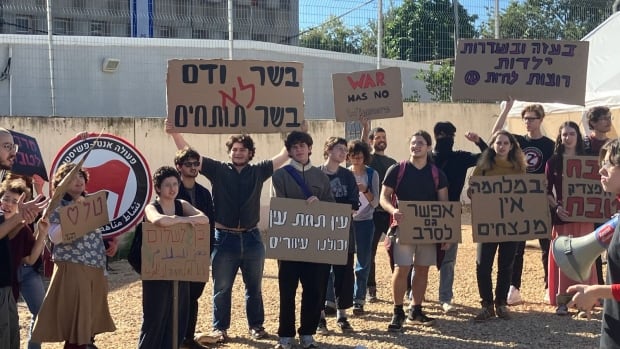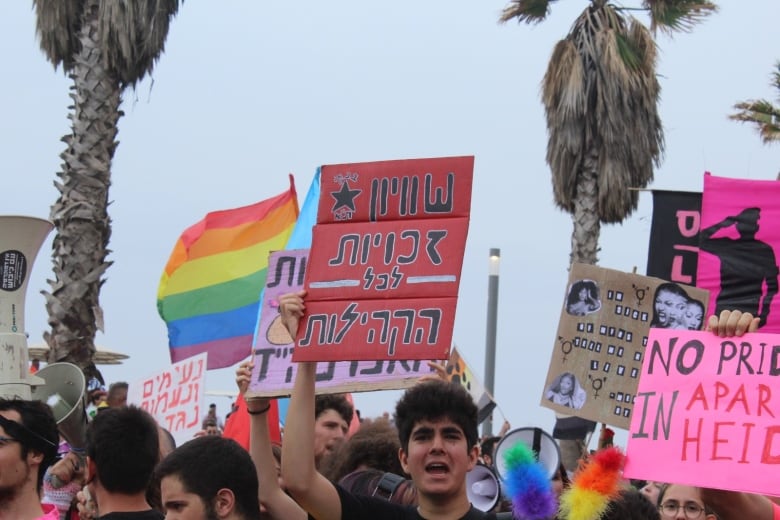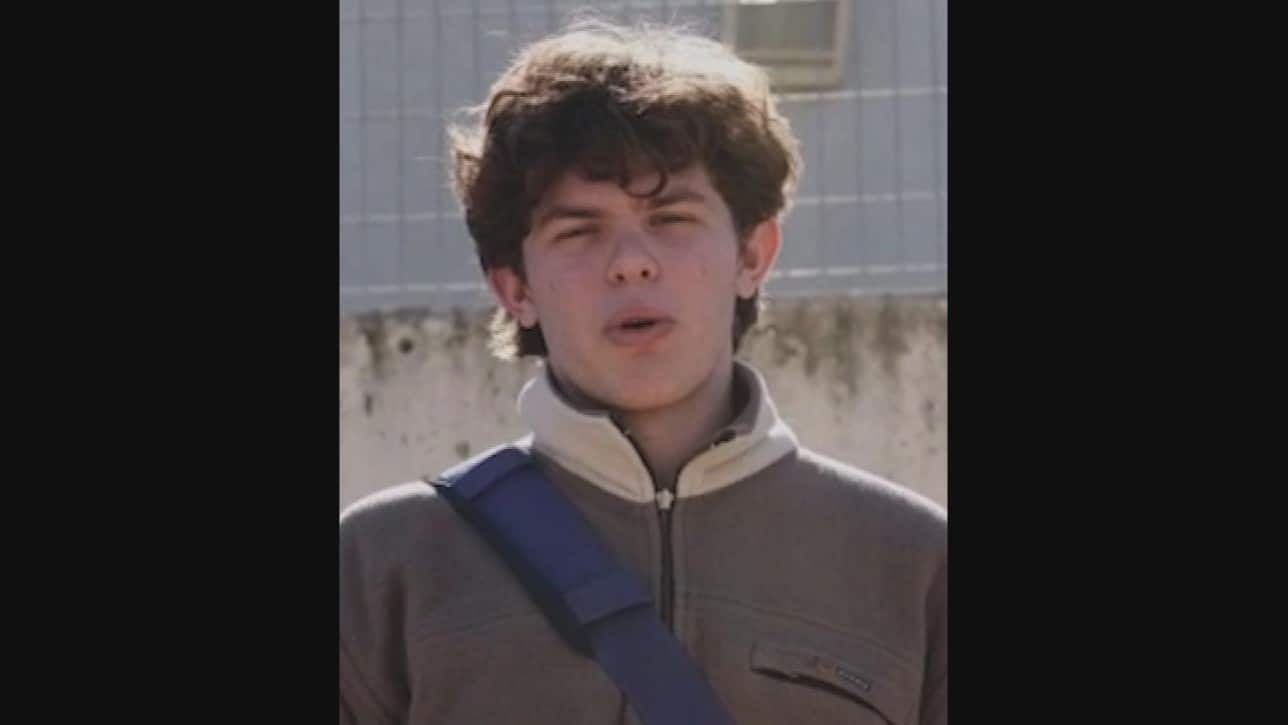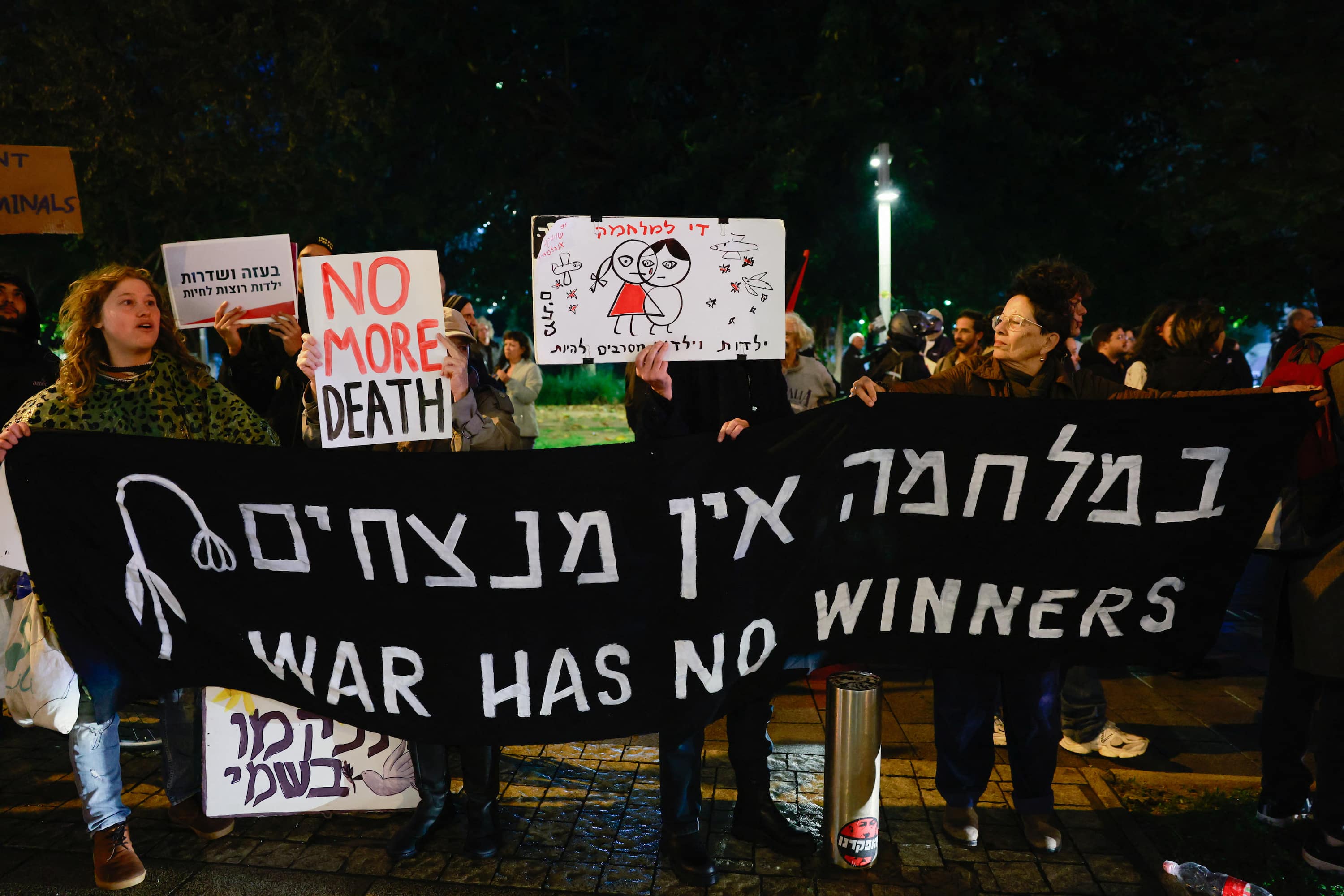
A handful of young people in Israel are refusing mandatory military service in the Israel Defence Forces on political grounds, in opposition to the Israel-Hamas war and the occupation of Palestinian territories.
Israeli teen Tal Mitnick, 18, was the first person arrested for refusing service on political grounds since Oct. 7 and was sentenced to 30 days in military prison on Tuesday. He first refused to enlist several weeks ago, setting in motion a trial process.
Mitnick wrote his reasons in a statement shared Tuesday by Mesarvot, one of several Israeli support groups for conscientious objectors, or “refuseniks” as they call themselves.
“Violence cannot solve the situation, neither by Hamas, nor by Israel. There is no military solution to a political problem,” Mitnick wrote. “Therefore, I refuse to enlist in an army that believes that the real problem can be ignored, under a government that only continues the bereavement and pain.”
Eighteen-year-old Israeli Tal Mitnick explains his decision to refuse mandatory military service in this video posted by the organization Mesarvot. ‘The criminal attack on Gaza won’t solve the atrocious slaughter that Hamas executed,’ Mitnick says in the video. He was later jailed for his decision.
Public refusals risky
According to Nimrod Flaschenberg, a spokesperson for Mesarvot, making a public political statement about refusing mandatory enlistment in the IDF is rare, and particularly risky in the current climate, where he says the war has received unparalleled backing in Israeli society because of the Hamas attack on Oct. 7.
“When somebody says he’s against the war he gets cursed, attacked on social media, and sometimes on the street and it’s harsh and tough,” Flaschenberg said.
Service in the military is compulsory for most Israeli men and women, and those who refuse to enlist on political grounds are typically sentenced to up to 10 days in prison, after which they are sent back to jail multiple times if they continue to refuse, according to Flaschenberg.
Earlier this year, Amnesty International documented a similar case in which a conscientious objector was jailed for an initial 10 days. Mitnick’s 30-day initial sentence, Flaschenberg said, is harsher than usual.
In an emailed statement to CBC News, a spokesperson for the IDF said Mitnick appeared before the military’s Conscience Committee after refusing to enlist.
“During the committee meeting, it was unanimously determined that no valid reason for conscientious objection was found,” the spokesperson said. “Consequently, his enlistment date was rescheduled approximately two weeks later.”
When Mitnick refused to enlist again, there was a trial Tuesday that resulted in a 30-day sentence at a military prison. “Following this period, he will undergo another interview with a screening officer,” said the spokesperson.
The IDF did not answer CBC’s questions about conscientious objectors — including requests for information about arrests and exemptions — in time for publication. The Israeli Defence Ministry declined to answer any questions about conscientious objectors and deferred them to the IDF.

Exemptions more common than refusals
Iddo Elam, 17, first met Mitnick last year, when they were among a group that organized an open letter — signed by over 200 teenagers, according to the Times of Israel — announcing their intention not to join compulsory military service in protest of the government’s proposed judicial overhaul and decades-long control of the West Bank.
When Elam comes of age next year, he plans to be a refusenik as well.
“Some of my closest friends who are less politically active thought I was a bit crazy,” Elam said. “Most of the people that I know think that this is just a drastic and radical step that is not needed, even if they somewhat agree with me about the occupation.”
According to Elam, friends who also opposed Israel’s occupation of the West Bank encouraged him to enlist in non-combat roles within the IDF instead.
With conscription being the norm, Elam and Flaschenberg say preparations for students to enlist in the IDF begin at around age 16, with classroom visits from military members and voluntary enrolment in boot camps.
Most people who avoid conscription do so by quieter means, like applying for exemptions, according to Flaschenberg.
Exemptions from service in the IDF are granted for ultra-Orthodox Haredi Jews, for those engaged in religious study and for physical and mental health reasons.

In some cases, the military may turn away prospective recruits. For example, Israel’s National Security Minister, Itamar Ben Gvir, was rejected by the IDF due to his far-right extremism.
Mental health and religious exemptions have been on the rise in recent years. According to a December 2020 media release from the Knesset, Israel’s parliament, mental health exemptions rose from around eight per cent in 2018 to 12 per cent in 2020.
The Knesset statement said a “sharp increase has been recorded in the number of draftees who are exempt from serving in the IDF for mental health reasons” or due to an arrangement known as the “torato omanuto” — Torah is his profession — which exempts men from army service as long as they study Torah on a full-time basis.
According to Flaschenberg, faking a mental illness is “a common way” for young people in Israel to avoid military service without attracting societal backlash.
“That’s the easier solution,” he said.
CBC News Network’s Neil Herland speaks with journalist Rebecca Collard about protests in Tel Aviv over the Netanyahu government. Get the latest on CBCNews.ca, the CBC News App, and CBC News Network for breaking news and analysis
Condemning war can bring arrests, reprisals
“Anybody who publicly says they are against the war is getting death threats and hate,” Elam said. “You see, for example, Palestinian citizens of Israel getting arrested for posts that condemn actions of the military in Gaza, that say ceasefire.”
These arrests have been documented by international media like Reuters, the Guardian, and the BBC.
Both Mitnick and Elam have families whose politics align with their own, which Elam says makes it easier for them to oppose Israeli governance more openly. Elam says he and other young activists not only refuse to enlist in the IDF, but also regularly protest against the Israeli occupation in the West Bank.
The purpose of their actions, he says, is to show young people that though mandatory military service is enshrined in law, it is not the only option.
“My message, basically, is we can refuse,” Elam said. “We don’t have to take orders from the army, we don’t have to be a part of this system of oppression, system of apartheid, system of mass destruction in Gaza right now.”

